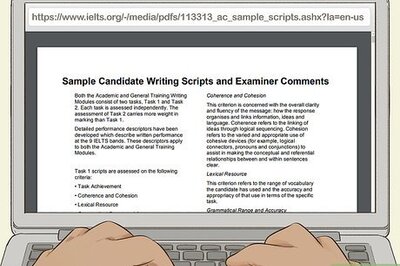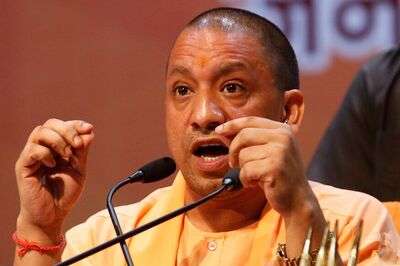
views
New Delhi: Inflation quickened in June, driven by higher prices of manufactured goods and fuel, adding pressure on the RBI to raise rates this month despite signs of slowing growth in Asia's third-largest economy.
New Delhi raised local prices of diesel, cooking gas and kerosene last month to cushion its finances and provide relief to government oil companies reeling from revenue losses on state-set fuel prices, adding to inflationary pressure.
The wholesale price index, India's main inflation gauge, rose an annual 9.44 per cent in June, though below the median forecast for a 9.70 per cent rise in a Reuters poll.
However, April inflation was revised sharply higher, to 9.74 per cent from 8.66 per cent, a sign that the final inflation figure for June could breach double-digits once that data goes through revisions in the coming months.
"Today's inflation data will force the RBI (Reserve Bank of India) to continue with its tightening but given the signs of slowdown in certain interest-rate sensitive sectors they will settle for a 25 bps increase instead of front-loading the rate hikes," said Bank of Baroda Chief Economist Rupa Rege Nitsure.
India's central bank chief last week voiced concern about sharp revisions in macroeconomic data, including growth and inflation figures, which he said could disrupt calculations when setting policy.
Annual fuel price inflation accelerated to 12.85 per cent in June from 12.32 per cent in May.
Manufacturing inflation quickened to 7.43 per cent from 7.27 per cent in May, continuing its steady rise and adding to evidence that inflation is becoming more broad-based after initially being driven by food and then fuel.
Policymakers have scaled back their economic growth targets from the 9 per cent goal set early this year, with many private economists predicting growth below 8 per cent in the year that ends in March.
"If need be we can live with slightly lower growth in order to have sustained long-run growth. So inflation needs to be controlled. There are no two ways about it," Kaushik Basu, chief economic adviser in the finance ministry, said on Thursday.
The RBI has raised rates 10 times since March 2010, ranking it among the most aggressive central bank in the world, and is expected to raise rates again by 25 basis points at its quarterly review on July 26.
Still, India's inflation rate remains far higher than in many other big emerging economies.
China, for instance, has raised interest rates five times in the current tightening cycle, while its benchmark inflation rate accelerated to a three-year high of 6.4 per cent year-on-year in June. China's main inflation gauge is the consumer price index, not wholesale prices as in India.
India's benchmark 7.80 per cent 2021 bond yield rose 3 basis points to 8.29 per cent following the sharp upward revision in April inflation data. The 5-year overnight indexed swap rates rose 6 bps to 7.56 per cent and 1-year was 9 bps higher at 7.96 per cent.
Although India's inflation rate is running hot, the economy has shown signs of cooling. The June PMI for manufacturing and industrial output growth for May dropped to nine-month lows, indicating a soft patch in the economy.
Most analysts expect the RBI to raise interest rates by another 50 basis points this year, including a hike on July 26, before it pauses.
That would take its benchmark repo rate to 8 percent. Yet even at that level, borrowing costs would most likely trail the inflation rate.
High global commodity prices continue to be a key risk to inflation while below-normal monsoon rains in India through July 12 have raised uncertainty about summer crop yields.
Increased rural income stemming from government schemes as well as persistently high food prices have heightened demand-side price pressures to inflation that was initially driven by supply constraints.
The government's policies have also played a role in pushing up prices. Goldman Sachs estimates that the direct impact of the hike in fuel prices would be about 60 basis points and the overall impact on inflation would be around 90 basis points.

















Comments
0 comment